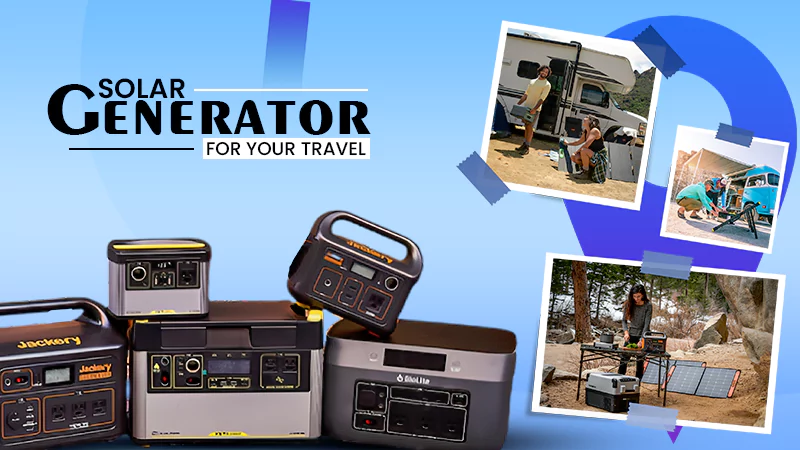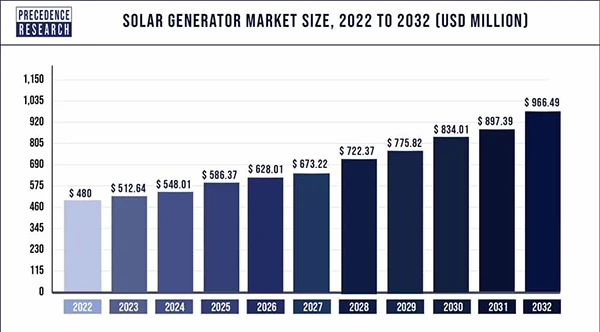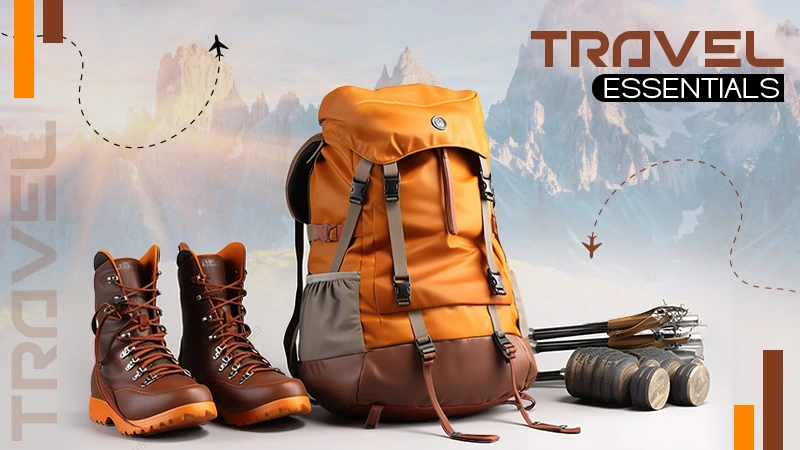
- Picking the Appropriate Solar Generator for You 101
- Understand Your Power Needs
- Portable vs. Fixed Solar Generators
- Solar Generator Terms You Should Know About
- Lithium-Ion vs. Lead-Acid Batteries: Which One Should You Select
- Additional Considerations in Finding the Right Solar Generator for You
- Further Tips for Selecting the Right Solar Generator
- To Conclude
It’s said that travelers choose solar when are on the move since it’s an eco-friendly alternative and a traditional power source.
As a result, solar generators have emerged as frontrunners in this pursuit of sustainable travel thanks to their ability to harness the sun’s energy and transform it into usable electricity.
The allure of remote ways lies in the promise of tranquility, a respite from the hustle and bustle of modern life. Yet, the desire to disconnect often clashes with our reliance on electricity.
Solar powered generator units have emerged as a game-changer, offering a sustainable and eco-friendly solution to power your off-grid adventures without compromising the serenity of the outdoors.
Picking the Appropriate Solar Generator for You 101
If you’re an avid camper seeking to power your devices in the wilderness or a road tripper aiming to reduce your carbon footprint, choosing the right solar generator can transform your travel experiences. Read on to learn more.
Understand Your Power Needs
The first step in picking up the ideal solar generator for your off-grid escapades is to assess your specific power requirements.
Consider the types of devices you intend to bring to your trip, their wattage consumption, and the duration of your journey.
If you primarily need to charge your smartphone and laptop, a smaller solar panel with a smaller capacity may suffice.
But if you plan to charge appliances like a mini-fridge or a portable projector, a larger generator with a volume is necessary for a hassle-free travel experience.
Portable vs. Fixed Solar Generators
Solar generators come in two primary configurations: portable and fixed.
Portable ones are designed for mobility, making them the perfect companions for camping, backpacking, or RV adventures.
Their lightweight, compact designs, integrated batteries, and foldable panels facilitate easy transportation and setup.
These panels are ideal for powering required devices like smartphones, laptops, and small appliances during off-grid excursions.
On the contrary, fixed solar generators are intended for permanent installations, such as in remote homes, cabins, or remote workplaces.
They offer higher charge capacities, enabling them to power larger appliances like refrigerators, air conditioners, and other electronic tools.
These typically require external battery storage to accommodate their increased energy demands.

Solar Generator Terms You Should Know About
It might be confusing to learn about solar generators and how you can make them engage with sunlight power.
But don’t need to worry anymore; all you need to do is navigate the world of solar generators effectively and familiarize yourself with these given key terms:
- Watt-hours (Wh) is a measurement used to describe energy storage capacity. The higher the Wh rating, the longer the generator can power devices.
- Running watts refers to the continuous power output a generator can provide. This determines the appliances you can charge simultaneously.
- Peak watts refer to the surge power required to start certain appliances, such as refrigerators or air conditioners.
- Inverter is the component that converts direct current (DC) from solar panels into alternating current (AC) for powering devices. Ensure the inverter’s wattage matches your energy requirements.
- Efficiency is the percentage of sunlight that’s transformed into electricity. Panels with higher efficiency can make more power per unit of sunlight.
Lithium-Ion vs. Lead-Acid Batteries: Which One Should You Select
Solar generators typically employ either lithium-ion or lead-acid batteries. Each type offers distinct advantages and disadvantages:
Lithium-ion batteries are a great option because they’re lightweight, have a longer lifespan, and have faster charging times. But they’re more expensive.
Meanwhile, lead-acid batteries are a great choice if you’re looking for an economical battery choice. Nonetheless, they’re typically heavier, have a shorter lifespan, and possess slower charging times.
Additional Considerations in Finding the Right Solar Generator for You
If you are willing to buy the right Solar generator that will support you for the long term, you must make sure that the device carries those vital features that can fulfill your needs.
Also, when evaluating it, consider factors beyond power capacity and battery type:
- Portability: For on-the-go travelers, portability is vital. Assess the generator’s weight, dimensions, and portability features.
- Durability: For rugged outdoor environments, durability is needed. Look for weatherproof construction, impact resistance, and dustproof seals.
- Safety Features: Safety is paramount for protecting your devices. Ensure the generator has overload protection, surge suppression, and proper grounding.
Did You Know?
In theory, humans first used solar energy as early as the 7th century B.C. by using magnifying glasses to spark fires with sunlight.
Further Tips for Selecting the Right Solar Generator
Whenever we buy any electronic device, we expect it to run for a long time or more than a decade. But is it possible?
Yes, of course, if you responsibly follow the further tips below, you can idealize the ways to utilize Solar Generators for a long period.
- Seek Expert Advice: Consult with experienced users or professionals to gain insights into specific models and suitability for your needs.
- Read User Reviews: Online reviews provide valuable feedback on real-world experiences with different insolation alternators.
- Consider Expandability: If your power needs may increase in the future, pick a generator with expandable battery capacity.
- Prioritize Efficiency: Opt for solar panels with higher efficiency ratings to maximize power output from sunlight.
To Conclude
Picking the right solar generator for your travel needs empowers you to embark on eco-friendly adventures and lets you enjoy uninterrupted access to electricity.
Carefully evaluating your energy requirements, understanding the types and terminology, exploring battery options, and considering additional factors can help you handpick the ideal companion for your sustainable tracking pursuits.
What are you waiting for? Harness the sun’s energy, minimize your environmental impact, and embrace the freedom of off-grid power today by picking the right solar generator for your travels.










